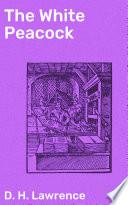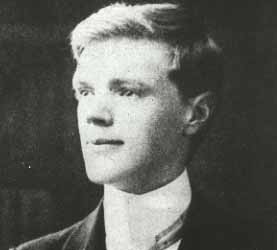Works
Studies in Classic American Literature
D.H. Lawrence
The Rainbow
D.H. Lawrence
The White Peacock
D.H. Lawrence
Kangaroo
D.H. LawrenceFamous D.H. Lawrence Quotes
“Money poisons you when you've got it, and starves you when you haven't.”
Lady Chatterley's Lover (1928)
Apocalypse (1930)
Context: What man most passionately wants is his living wholeness and his living unison, not his own isolate salvation of his "soul." Man wants his physical fulfillment first and foremost, since now, once and once only, he is in the flesh and potent. For man, the vast marvel is to be alive. For man, as for flower and beast and bird, the supreme triumph is to be most vividly, most perfectly alive. Whatever the unborn and the dead may know, they cannot know the beauty, the marvel of being alive in the flesh. The dead may look after the afterwards. But the magnificent here and now of life in the flesh is ours, and ours alone, and ours only for a time. We ought to dance with rapture that we should be alive and in the flesh, and part of the living, incarnate cosmos. I am part of the sun as my eye is part of me. That I am part of the earth my feet know perfectly, and my blood is part of the sea. My soul knows that I am part of the human race, my soul is an organic part of the great human soul, as my spirit is part of my nation. In my own very self, I am part of my family. There is nothing of me that is alone and absolute except my mind, and we shall find that the mind has no existence by itself, it is only the glitter of the sun on the surface of the waters.
Self-Pity (1929)
Source: The Complete Poems
Poem, "Liberty's old story" in Pansies (Third typing, ribbon copy - 231 poems, c. 11-28 February 1929)
D.H. Lawrence Quotes about life
“A woman has to live her life, or live to repent not having lived it.”
Source: Lady Chatterley's Lover
“But better die than live mechanically a life that is a repetition of repetitions.”
Source: Women in Love (1920), Ch. 15
D.H. Lawrence Quotes about love
D.H. Lawrence: Trending quotes
“What the eye doesn't see and the mind doesn't know, doesn't exist.”
Source: Lady Chatterley's Lover
D.H. Lawrence Quotes
Lady Chatterley's Lover (1928)
Context: The world is supposed to be full of possibilities, but they narrow down to pretty few in most personal experience. There's lots of good fish in the sea... maybe... but the vast masses seem to be mackerel or herring, and if you're not mackerel or herring yourself you are likely to find very few good fish in the sea.
“Censors are dead men
set up to judge between life and death.”
Censors (1929)
Context: Censors are dead men
set up to judge between life and death.
For no live, sunny man would be a censor,
he'd just laugh.
A Propos of Lady Chatterley's Lover (1929)
Context: Augustine said that God created the universe new every day: and to the living, emotional soul, this is true. Every dawn dawns upon an entirely new universe, every Easter lights up an entirely new glory of a new world opening in utterly new flower. And the soul of man and the soul of woman is new in the same way, with the infinite delight of life and the ever-newness of life. So a man and a woman are new to one another throughout a life-time, in the rhythm of marriage that matches the rhythm of the year.
A Propos of Lady Chatterley's Lover (1929)
Context: Sex is the balance of male and female in the universe, the attraction, the repulsion, the transit of neutrality, the new attraction, the new repulsion, always different, always new. The long neuter spell of Lent, when the blood is low, and the delight of the Easter kiss, the sexual revel of spring, the passion of midsummer, the slow recoil, revolt, and grief of autumn, greyness again, then the sharp stimulus of winter of the long nights. Sex goes through the rhythm of the year, in man and woman, ceaselessly changing: the rhythm of the sun in his relation to the earth. Oh, what a catastrophe for man when he cut himself off from the rhythm of the year, from his unison with the sun and the earth. Oh, what a catastrophe, what a maiming of love when it was a personal, merely personal feeling, taken away from the rising and the setting of the sun, and cut off from the magic connection of the solstice and the equinox! This is what is the matter with us. We are bleeding at the roots, because we are cut off from the earth and sun and stars, and love is a grinning mockery, because, poor blossom, we plucked it from its stem on the tree of Life, and expected it to keep on blooming in our civilised vase on the table.
A Propos of Lady Chatterley's Lover (1929)
Context: We are today, as human beings, evolved and cultured far beyond the taboos which are inherent in our culture. This is a very important fact to realise. Probably, to the Crusaders, mere words were potent and evocative to a degree we can't realise. The evocative power of the so-called obscene words must have been very dangerous to the dim-minded, obscure, violent natures of the Middle Ages, and perhaps are still too strong for slow-minded, half-evoked lower natures today. But real culture makes us give to a word only those mental and imaginative reactions which belong to the mind, and saves us from violent and indiscriminate physical reactions which may wreck social decency. In the past, man was too weak-minded, or crude-minded, to contemplate his own physical body and physical functions, without getting all messed up with physical reactions that overpowered him. It is no longer so. Culture and civilisation have taught us to separate the reactions. We now know the act does not necessarily follow on the thought. In fact, thought and action, word and deed, are two separate forms of consciousness, two separate lives which we lead. We need, very sincerely, to keep a connection. But while we think, we do not act, and while we act we do not think. The great necessity is that we should act according to our thoughts, and think according to our acts. But while we are in thought we cannot really act, and while we are in action we cannot really think. The two conditions, of thought and action, are mutually exclusive. Yet they should be related in harmony.
A Propos of Lady Chatterley's Lover (1929)
Context: Marriage is the clue to human life, but there is no marriage apart from the wheeling sun and the nodding earth, from the straying of the planets and the magnificance of the fixed stars. Is not a man different, utterly different, at dawn from what he is at sunset? And a woman too? And does not the changing harmony and discord of their variation make the secret music of life?
A Propos of Lady Chatterley's Lover (1929)
Context: We are today, as human beings, evolved and cultured far beyond the taboos which are inherent in our culture. This is a very important fact to realise. Probably, to the Crusaders, mere words were potent and evocative to a degree we can't realise. The evocative power of the so-called obscene words must have been very dangerous to the dim-minded, obscure, violent natures of the Middle Ages, and perhaps are still too strong for slow-minded, half-evoked lower natures today. But real culture makes us give to a word only those mental and imaginative reactions which belong to the mind, and saves us from violent and indiscriminate physical reactions which may wreck social decency. In the past, man was too weak-minded, or crude-minded, to contemplate his own physical body and physical functions, without getting all messed up with physical reactions that overpowered him. It is no longer so. Culture and civilisation have taught us to separate the reactions. We now know the act does not necessarily follow on the thought. In fact, thought and action, word and deed, are two separate forms of consciousness, two separate lives which we lead. We need, very sincerely, to keep a connection. But while we think, we do not act, and while we act we do not think. The great necessity is that we should act according to our thoughts, and think according to our acts. But while we are in thought we cannot really act, and while we are in action we cannot really think. The two conditions, of thought and action, are mutually exclusive. Yet they should be related in harmony.
A Propos of Lady Chatterley's Lover (1929)
Context: Sex is the balance of male and female in the universe, the attraction, the repulsion, the transit of neutrality, the new attraction, the new repulsion, always different, always new. The long neuter spell of Lent, when the blood is low, and the delight of the Easter kiss, the sexual revel of spring, the passion of midsummer, the slow recoil, revolt, and grief of autumn, greyness again, then the sharp stimulus of winter of the long nights. Sex goes through the rhythm of the year, in man and woman, ceaselessly changing: the rhythm of the sun in his relation to the earth. Oh, what a catastrophe for man when he cut himself off from the rhythm of the year, from his unison with the sun and the earth. Oh, what a catastrophe, what a maiming of love when it was a personal, merely personal feeling, taken away from the rising and the setting of the sun, and cut off from the magic connection of the solstice and the equinox! This is what is the matter with us. We are bleeding at the roots, because we are cut off from the earth and sun and stars, and love is a grinning mockery, because, poor blossom, we plucked it from its stem on the tree of Life, and expected it to keep on blooming in our civilised vase on the table.
“She was always waiting, it seemed to be her forte.”
Source: Lady Chatterley's Lover
“A little morphine in all the air. It would be wonderfully refreshing for everyone.”
Source: Lady Chatterley's Lover
“Be a good animal, true to your instincts.”
Source: The White Peacock
"Search for Love" in The Works of D. H. Lawrence, Wordsworth Editions, (1994), p. 552
Source: Lady Chatterley's Lover
Source: Lady Chatterley's Lover
Source: Lady Chatterley's Lover
Source: Lady Chatterley's Lover
“If I were the moon, I know where I would fall down.”
Source: The Rainbow
Studies in Classic American Literature (1923)
“The essential American soul is hard, isolate, stoic, and a killer. It has never yet melted.”
Source: Studies in Classic American Literature
Source: Lady Chatterley's Lover
“My God, these folks don't know how to love — that's why they love so easily.”
Letter to Blanche Jennings (8 May 1909), The Letters of D. H. Lawrence, ed. James T. Boulton, Vol. 1 (1979), pp. 127


